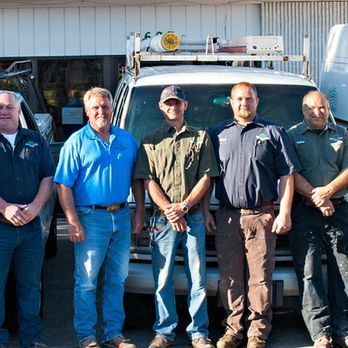Why Is My Water Heater Leaking?
Frozen pipes are a common issue, especially during the cold winter months. When temperatures drop, the water inside pipes can freeze, potentially causing them to burst. Dealing with frozen pipes can be stressful, but with the right knowledge and tools, you can often resolve the issue yourself and prevent costly damage. This guide walks you through the steps to safely thaw and fix frozen pipes.
Reasons Behind the Water Heater Leaking
1. Pressure Relief Valve Issues
One of the frequent culprits for water heater leaks is a malfunctioning pressure relief valve. This valve is designed to release excess pressure to prevent tank rupture, but if it doesn't seal correctly, it can lead to leaks.
Solution: Check the pressure relief valve for leaks, and if it's dripping, consider replacing it. This should be done by a professional to ensure proper installation and safety.
2. Corrosion and Rust
Over time, water heaters can develop corrosion and rust, especially in areas with hard water. This corrosion can weaken the tank and lead to water leakage.
Solution: Unfortunately, once corrosion sets in, there's no simple fix. The best solution is to replace the water heater. To prevent future issues, consider installing a water softener to reduce the impact of hard water on your new unit.
3. Loose or Damaged Drain Valve
The drain valve at the bottom of the water heater can sometimes become loose or damaged, resulting in water leakage.
Solution: If the drain valve is loose, you can tighten it with a wrench. If it's damaged, you may need to replace it. Ensure the power and water supply to the water heater are turned off before attempting any repairs.
4. Leaking Tank
A leaking tank is a severe issue that can't be easily repaired. It usually signals the end of the water heater's lifespan and the need for a replacement.
Solution: If you discover a leaking tank, it's time to invest in a new water heater. Consider opting for a high-quality, energy-efficient model to save on energy costs and prevent future leaks.
5. Preventing Water Heater Leaks
To prevent water heater leaks in the future and extend the lifespan of your unit, consider these preventive measures:
- Regular Maintenance: Schedule annual inspections and maintenance by a professional plumber to catch potential issues early.
- Install a Water Softener: If you have hard water, consider installing a water softener to reduce the impact of mineral buildup and corrosion on your water heater.
- Replace Anode Rod: An anode rod helps protect the tank from corrosion. Regularly inspect and replace it as needed.
- Monitor Pressure Relief Valve: Check the pressure relief valve periodically to ensure it's functioning correctly.
By understanding the common causes of water heater leaks and implementing the recommended solutions, you can prevent water damage, save on repair costs, and ensure your water heater functions efficiently. Remember that when dealing with water heater issues, safety should always come first. If you're unsure about any of the troubleshooting or solutions, it's advisable to consult with a professional plumber for expert guidance and assistance. Regular maintenance and vigilance can help keep your water heating system in good working order for years to come.

Emergency Plumbers
At sunshine plumbers, we are proud to be on call 24 hours a day, 365 days a year, ready to provide prompt and reliable emergency plumbing services
Residential Plumbing
Let sunshine plumbers take care of your plumbing needs, and we'll make sure your home's plumbing system runs smoothly and efficiently.
Commercial Plumbing
Trust sunshine plumbers to keep your commercial plumbing system in top shape, ensuring smooth operations and customer satisfaction.
